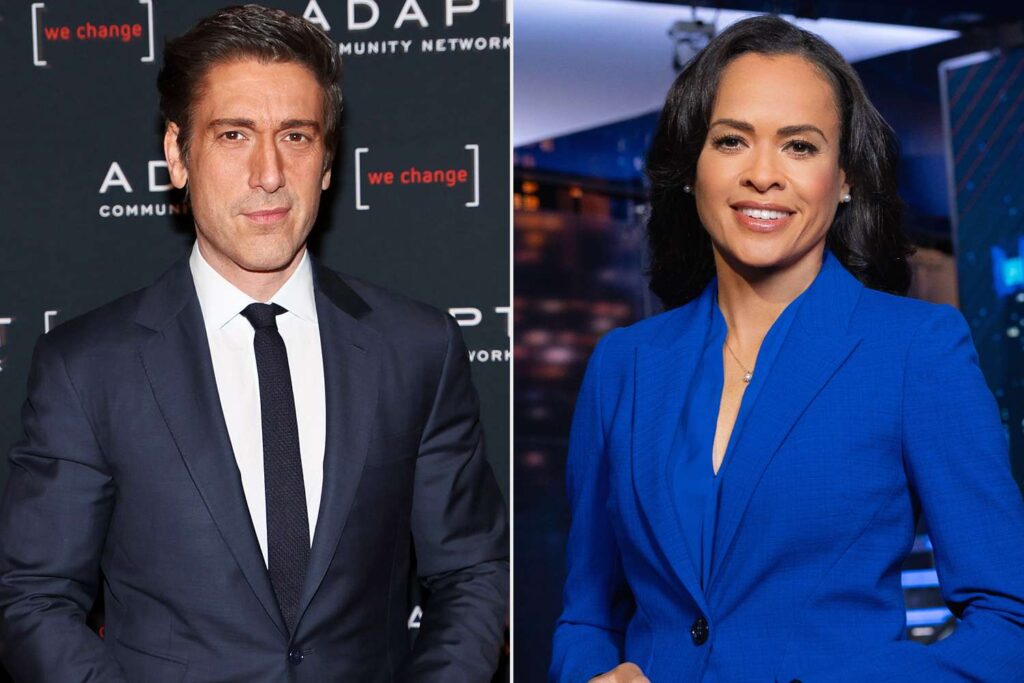
In the last debate, barely 10 weeks ago, Joe Biden’s performance was so bad it was the only talking point in the smoking aftermath. But … had he performed less badly there would have been a larger, more vigorous conversation about the performance of CNN’s moderators, Jake Tapper and Dana Bash.
Amid the Biden wreckage Tapper and Bash were generally credited for running a smooth, straight forward, professional ship. They successfully deflected (muted) complaints that they did nothing to fact check Trump’s usual blizzard of lies and absurd exaggerations. “Not our job,” was basically their response.
Leading up to this evening’s Harris-Trump face-off, the issue of where smoothly professional, above the fray, just-asking-the-questions-here, let-the-viewers-decide journalism separates from acknowledging the reality everyone fully understands is a hotter, more salient topic than it was 10 weeks ago. Trump has gotten that much more incoherent and vulgar. Namely, to re-state the obvious, we aren’t tuning in to Dwight Eisenhower going face-to-face with Adlai Stevenson. (They never debated FWIW.)
One of the candidates this evening has built an astonishing cult of personality by violating every tradition and protocol of normal politics. This obvious fact (again) powerfully suggests that the smooth, Big J journalism embodied tonight by ABC’s David Muir and Linsey Davis needs to adjust to a significantly, substantially different fact of life. A reality that bears little resemblance to the polite and orderly decorum of their grandparents, much as they and we might wish otherwise.
Within the (likely shrinking) circles of people who care about sustaining a vibrant press there has been a flurry of debate recently over mainstream journalism’s “sane-washing” of Donald Trump. The complaint ties directly to the unambiguous fact that after a decade of wrestling with the man’s act professional fact gatherers still have not figured out a way to respond to someone leading a revolution of 60-70 million people despite and/or because he has no respect for the truth … as well as unabashed contempt for the profession asking him questions.
Examples of the current debate can be found in: Margaret Sullivan’s post on “sane-washing.” A Michael Tomasky column in The New Republic. Greg Sargent, also in The New Republic. And a substack piece by James Fallows that is generally credited for reigniting this controversy. (HT to Jim Boyd for that one.)
The gist of it all is that professional journalists are — for a variety of reasons — reluctant (or is it “trepidatious”?) to describe what they hear Trump say and see him doing. Reluctantly certainly to report in the kind of specific language and vernacular understandable to general reader/viewership. To call a lie a :”lie”, or to describe a comment as “incoherent” or, god forbid, “utter nonsense”, contradicts their training and fundamental ethos.
They have been taught — and hired for their current jobs — with the virtues of propriety and “fairness” firmly in mind … even when “fairness” means distorting the obvious reality to make it appear more proper.
If not outright fear, journalists like Tapper, Bash, Muir and reporters at regional outlets like the Star Tribune and local TV have credible reasons for trepidation. Reporting and fact-checking daily on Trump’s ludicrous lies, blithering incoherence and constant vulgarity risks instantaneous and irrational blowback from Trump’s public. Blowback from his base frequently comes disturbing threats of violence and — more significantly — puts the reporter and paper/TV station in the position of devoting dozens of hours and human resources defending itself from attacks. Attacks on their reputation that increase the likelihood of financial consequences in terms of lowered ratings, fewer subscriptions and impact on shareholder value.
The fact Trump understands the mainstream media’s self-imposed restraints on its coverage of him hardly makes the situation better. He knows they’ve tied themselves in knots in order to preserve their status of “fairness” and “balance.”
What I’ll be looking for from Muir and Davis tonight are questions to Trump (in particular) that focus on his most consequential lies and bar stool bombast.
For example:
Will they ask him, first if not early in the evening, what basis he has for still claiming the 2020 election was “rigged” or “stolen”? And will they respond by noting that 63 courts and his own election guru said otherwise?
Will they ask him if he will accept the results of this election … even if he loses?
Will they ask him how exactly he intends to deport 10-12 million immigrants and what he means when he regularly refers to the process as being “bloody?”
Will they ask him to explain how tariffs, essentially a sales tax paid by American consumers, will improve the financial well-being of middle-class Americans?
Will they ask him why he re-posted an on-line “joke” that Kamala Harris provided sexual favors to advance her career?
And of course, with a nod to journalistic fairness, they should put the same questions to Harris … .
However it goes tonight, the question of how professional journalists, some famous and very well paid, continue to cover a rogue operator like Trump will remain vital to the health of not just their profession, but this “democratic experiment”, as the wonks like to call it.
I fail to see how maintaining the attitude that, “We’re not going to ask the most pertinent and obvious quesation out fear of being criticized”, reinvigorates a floundering profession.
The job of reporting “without fear or favor” comes with risks. It comes with having to tell people things they don’t want to hear, and being called names (and worse) for it. It’s not a business you get in to because you really, really want to be liked.

 In the 20 minutes it took me to drive home from a debate-watching party last night the “elite media” decided that Donald Trump badly lost the first debate with Hillary Clinton and that as ridiculous as he looked and sounded (the sniffing!) it wasn’t going to matter all that much.
In the 20 minutes it took me to drive home from a debate-watching party last night the “elite media” decided that Donald Trump badly lost the first debate with Hillary Clinton and that as ridiculous as he looked and sounded (the sniffing!) it wasn’t going to matter all that much.